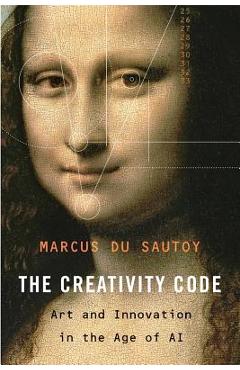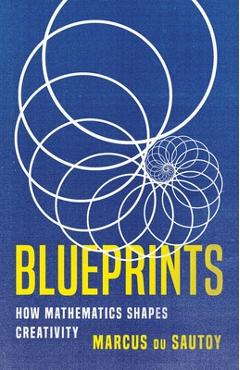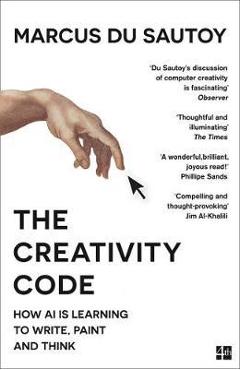The Creativity Code: Art and Innovation in the Age of AI - Marcus Du Sautoy

Detalii The Creativity Code: Art and
libris.ro
195.3 Lei
217 Lei
Computers
Marcus Du Sautoy
The Creativity Code: Art and - Disponibil la libris.ro
Pe YEO găsești The Creativity Code: Art and de la Marcus Du Sautoy, în categoria Computers.
Indiferent de nevoile tale, The Creativity Code: Art and Innovation in the Age of AI - Marcus Du Sautoy din categoria Computers îți poate aduce un echilibru perfect între calitate și preț, cu avantaje practice și moderne.
Preț: 195.3 Lei
Caracteristicile produsului The Creativity Code: Art and
- Brand: Marcus Du Sautoy
- Categoria: Computers
- Magazin: libris.ro
- Ultima actualizare: 24-04-2024 01:14:00
Comandă The Creativity Code: Art and Online, Simplu și Rapid
Prin intermediul platformei YEO, poți comanda The Creativity Code: Art and de la libris.ro rapid și în siguranță. Bucură-te de o experiență de cumpărături online optimizată și descoperă cele mai bune oferte actualizate constant.
Descriere magazin:
The award-winning author of The Music of the Primes explores the future of creativity and how machine learning will disrupt, enrich, and transform our understanding of what it means to be human. Can a well-programmed machine do anything a human can--only better? Complex algorithms are choosing our music, picking our partners, and driving our investments. They can navigate more data than a doctor or lawyer and act with greater precision. For many years we\'ve taken solace in the notion that they can\'t create. But now that algorithms can learn and adapt, does the future of creativity belong to machines, too? It is hard to imagine a better guide to the bewildering world of artificial intelligence than Marcus du Sautoy, a celebrated Oxford mathematician whose work on symmetry in the ninth dimension has taken him to the vertiginous edge of mathematical understanding. In The Creativity Code he considers what machine learning means for the future of creativity. The Pollockizer can produce drip paintings in the style of Jackson Pollock, Botnik spins off fanciful (if improbable) scenes inspired by J. K. Rowling, and the music-composing algorithm Emmy managed to fool a panel of Bach experts. But do these programs just mimic, or do they have what it takes to create? Du Sautoy argues that to answer this question, we need to understand how the algorithms that drive them work--and this brings him back to his own subject of mathematics, with its puzzles, constraints, and enticing possibilities. While most recent books on AI focus on the future of work, The Creativity Code moves us to the forefront of creative new technologies and offers a more positive and unexpected vision of our future cohabitation with machines. It challenges us to reconsider what it means to be human--and to crack the creativity code.

Produse asemănătoare
Produse marca Marcus Du Sautoy

Thinking Better: The Art of the Shortcut in Math and Life - Marcus Du Sautoy
![]() libris.ro
libris.ro
Actualizat in 28/10/2025
105.97 Lei

The Music of the Primes: Searching to Solve the Greatest Mystery in Mathematics - Marcus Du Sautoy
![]() libris.ro
libris.ro
Actualizat in 28/10/2025
107.07 Lei

Blueprints: How Mathematics Shapes Creativity - Marcus Du Sautoy
![]() libris.ro
libris.ro
Actualizat in 28/10/2025
178.56 Lei


